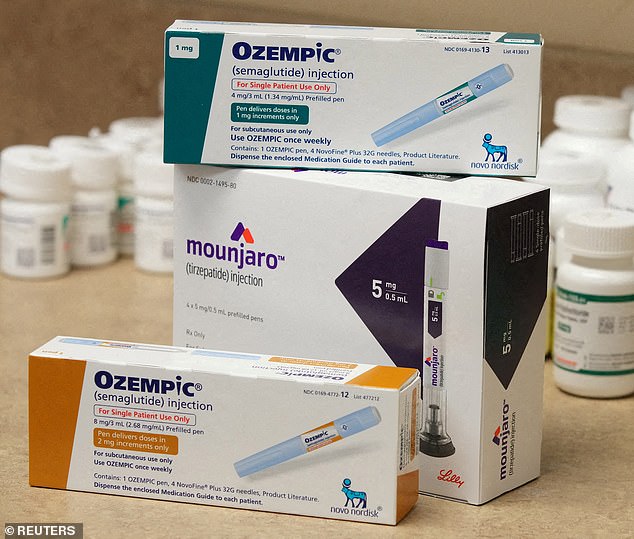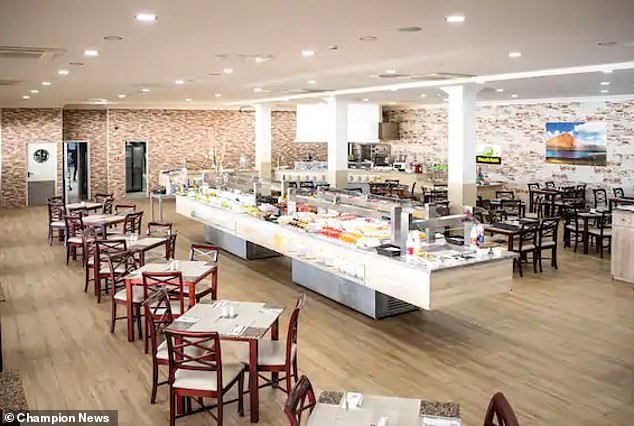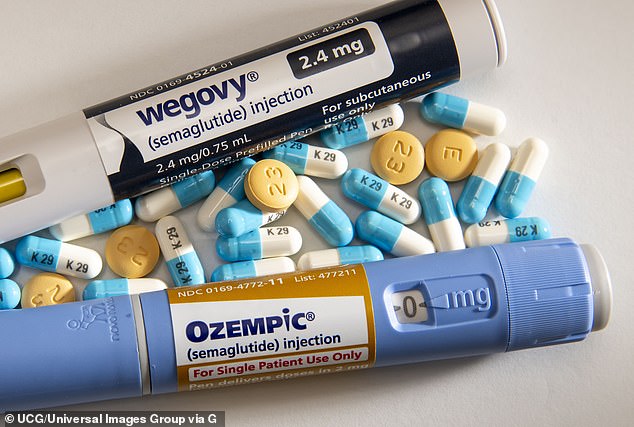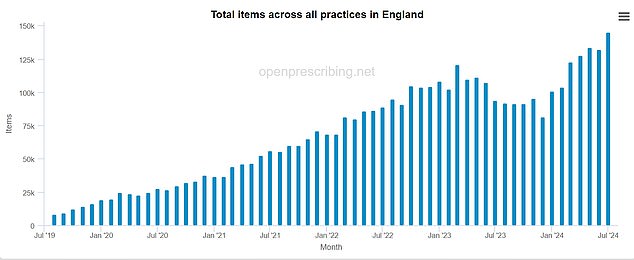Holiday resorts are set to introduce ‘Ozempic menus’ and smaller portions for tourists as fat jab boom spreads into the travel industry
A boom in miracle weight loss drugs could see holiday resorts introduce ‘Ozempic menus’ and smaller portions for tourists, according to travel experts.
Prescription drugs, such as Ozempic and Mounjaro, known as GLP-1s were originally designed to treat people with type 2 diabetes by stimulating insulin secretion and delaying gastric emptying.
However, after it was discovered that the drug makes people feel full longer, it became possible to obtain an ‘off-label’ prescription as a weight-loss treatment.
With forecasts predicting a £78 billion GLP-1 market by 2030, travel companies that generate revenue from food and drink sales could dramatically change their offering to cater to customers’ suppressed appetites.
Speaking to MailOnline, Seda Yilmaz, director of Timeless PR and Turkey Tourism Expert, said that resorts could start offering ‘Ozempic-friendly’ menus or wellness-focused packages in the near future.
“Many destinations are already catering to guests who are mindful of portion sizes and nutritional content,” she said.
“But resorts could look at offering smaller portioned, composed dishes or even wellness-focused dining options that suit the health-conscious preferences of these travelers.
“Luxury hotels and high-end eateries may even see this as an opportunity to introduce specialized menus with smaller, nutritious dishes that suit the healthy lifestyle of modern travelers.
Tourism expert Seda Yilmaz, pictured, said resorts could start offering ‘Ozempic-friendly’ menus or wellness packages in the near future

The use of weight loss medications such as Ozempic and Mounjaro has increased rapidly in recent years

In the near future, restaurants could start offering “Ozempic-friendly” menus
‘In Turkey’s growing wellness tourism sector, we could see Ozempic-specific or wellness-focused packages.
‘As more travelers seek mindfulness and fitness experiences such as thermal pools, hammams and yoga retreats, there is potential for tourism packages that prioritize activities over food and nightlife.’
The tourism expert too claimed that Ozempic users could be missing out on the full experience of the cities they visit.
She said: ‘With the rise of appetite suppressant drugs such as Ozempic we are seeing shifts that impact not only what people eat, but also how they experience travel in general.
‘In Turkey, for example, food is a central part of the tourist experience – mezze spreads, traditional kebabs and baklava are major highlights.
‘But with the popularity of drugs like Ozempic, which can curb cravings, we could see more travelers opting for smaller portions or fewer meals.’
In May it was unveiled in a KFF health research that one in eight American adults has used a GLP-1 agonist.
This came after there was a 300 percent increase in GLP-1 prescriptions between 2020 and 2022.

Ms. Yilmaz claimed that we could see “Ozempic-specific or wellness-focused packages” in the near future

Travel experts have claimed that all-inclusive resorts that rely on food and drink sales to generate revenue could look to change what they offer to customers

The medicines watchdog received reports of ten deaths related to the use of slimming injections
With other case studies, such as a mother of two in Britain who lost 10 stone on a Wegovy and Mounjaro-backed program after struggling to lose weight for 30 years, the ‘Ozempic era’ feels right.
Those that benefit from having more customers who have used the drug include companies where food and beverages are a cost rather than a source of revenue, say researchers at Skift to suggest.
This includes airlines, all-inclusive resorts, cruises and tour operators that could benefit from a customer base that wants to eat and drink less.
However, cinemas, entertainment venues, hotels and theme parks that rely on food and beverage sales to generate revenue may face challenges.
Airlines in particular could benefit from a smaller customer base, which in turn reduces fuel consumption.
Researchers also suggested that passports could see an increase in reprocessing requests as people’s faces change due to dramatic weight loss.
However, the UK’s drugs watchdog confirmed that weight loss jabs such as Ozempic have now been linked to ten deaths.
There have also been 7,228 reports of nausea, vomiting and diarrhea associated with drugs such as Wegovy and Ozempic.

NHS-backed data source OpenPrescribe shows rising prescriptions for semaglutide, the drug in Ozempic and Wegovy
Of these, 68 patients were admitted to hospital, the Medicines and Healthcare products Regulatory Agency (MHRA) said.
The MHRA urged healthcare professionals to ‘report cases of misuse’ and ‘inform patients of the common and serious side effects associated with GLP-1RAs’.
Health Minister Wes Streeting has said the injections are not ‘cosmetic’ treatments and should only be used by obese people who have been unable to shift their weight through diet and exercise.
As well as costing an estimated £830 for a year’s supply in Britain, reported side effects include fatigue, headaches, sexual dysfunction, muscle loss, hair loss, kidney damage and digestive problems, along with bad breath and intestinal blockages.
There is even research that suggests that weight loss shots can help people reduce alcohol and substance abuse altogether.
The injections not only reduce a person’s appetite, but also reduce the desire to drink alcohol or smoke cigarettes.
